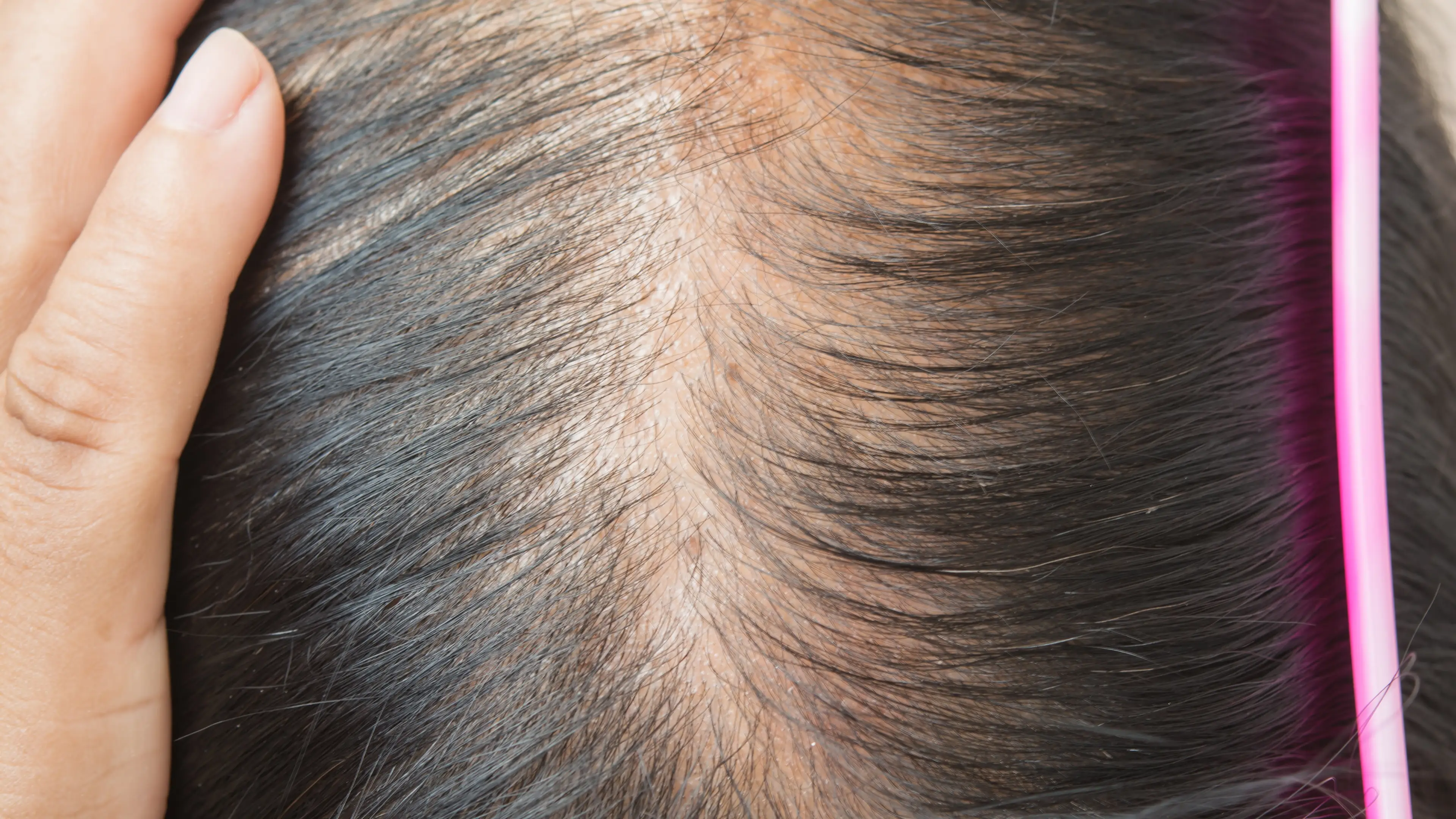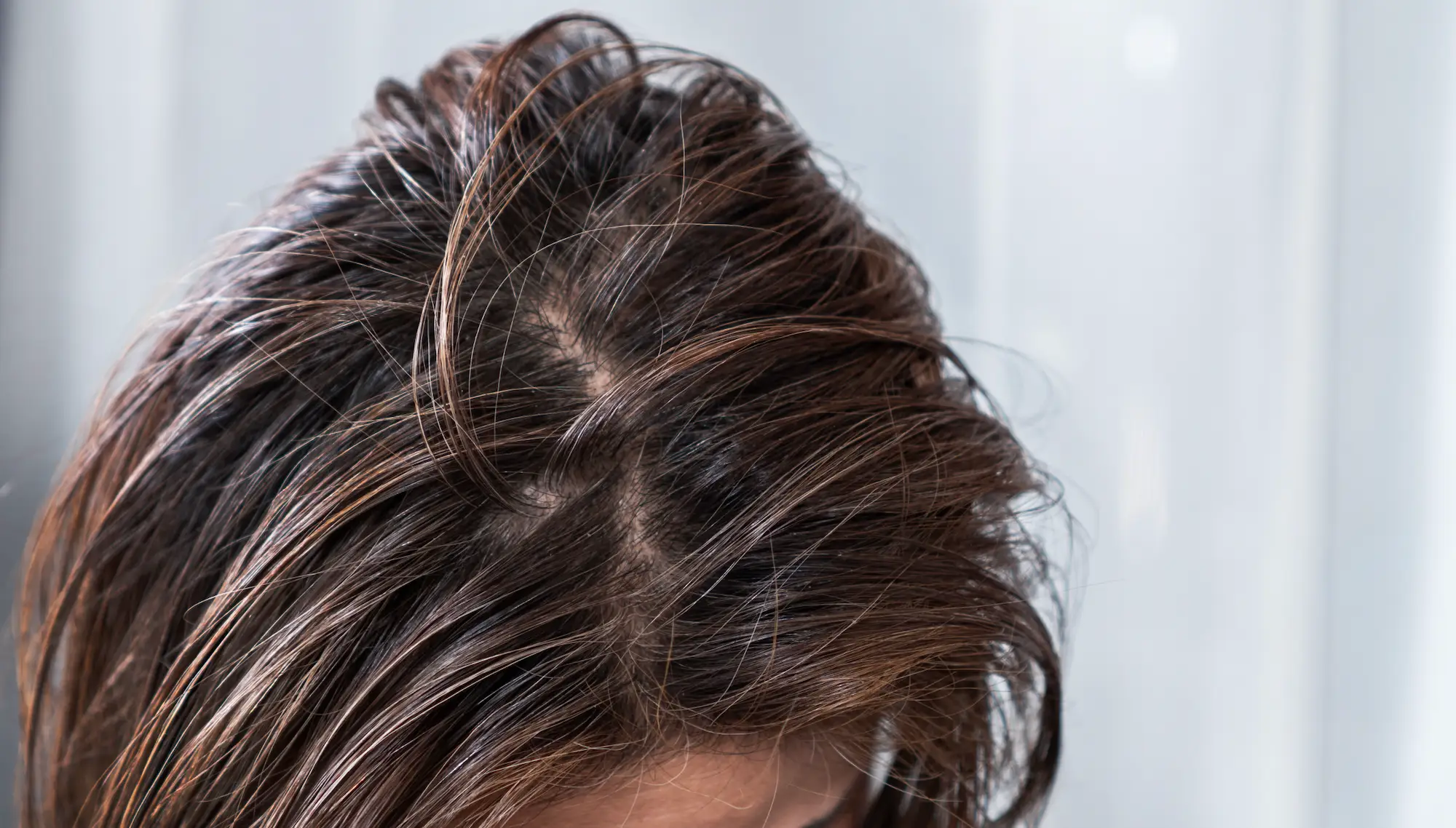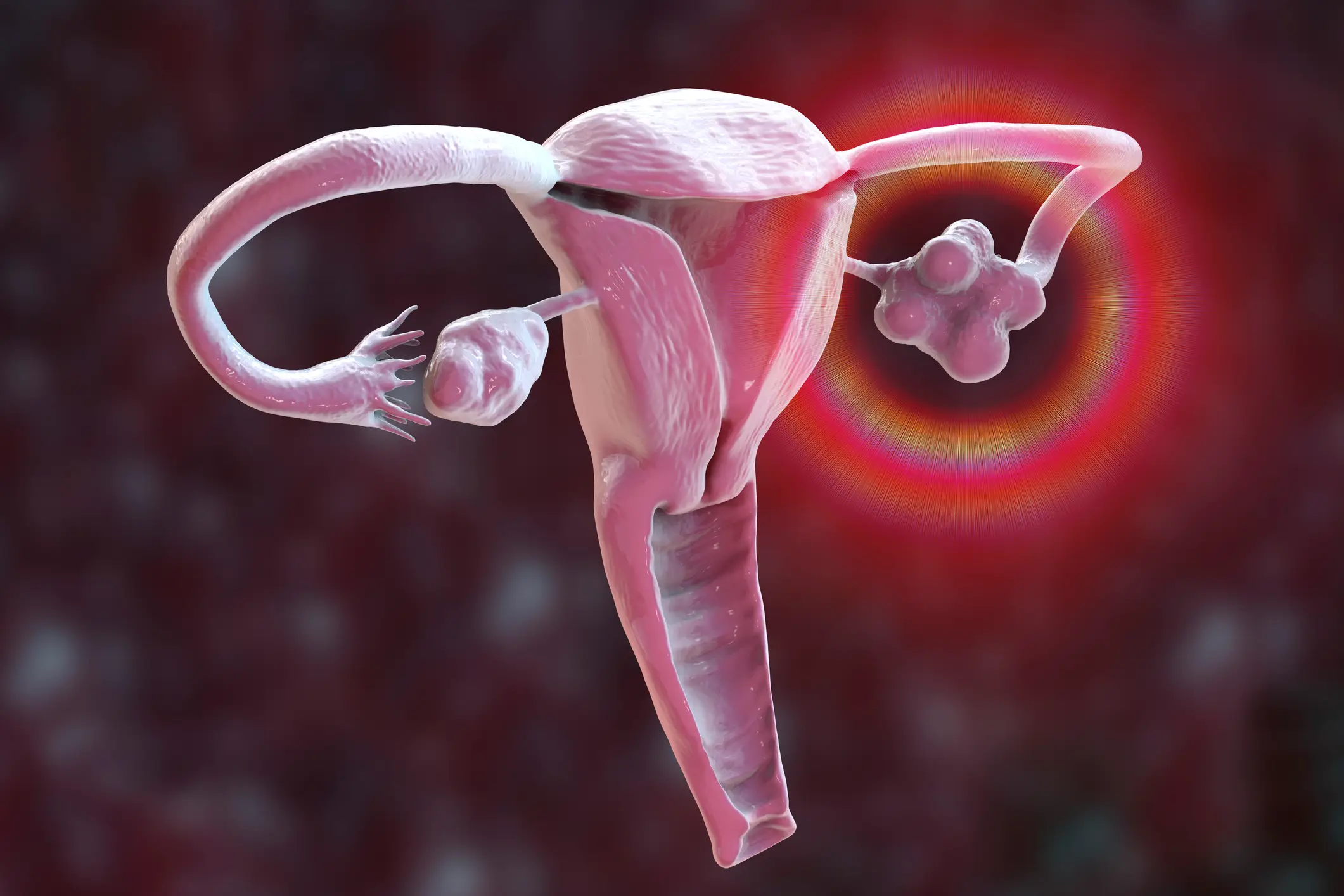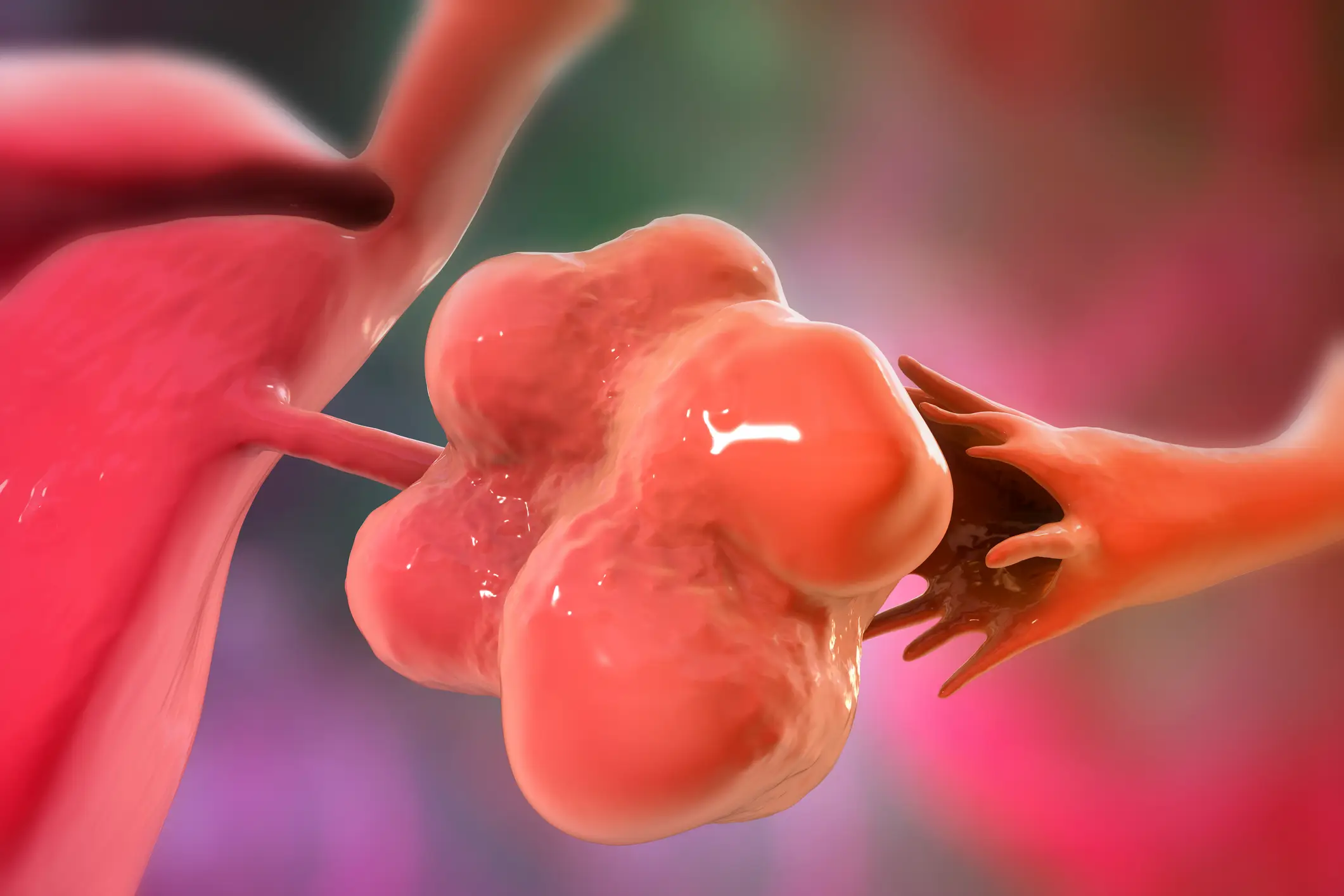A doctor has revealed one specific warning sign you can notice on your scalp that could be a symptom of a health condition that affects 1 in 10 women.
Now, for many of us, an oily scalp is nothing more than simply running out of dry shampoo, not having the energy to faff with a cover-up slick-back bun or waiting a little too long between hair wash days.
However, according to an expert, it may be cause for concern if you're noticing an oily scalp more often than usual.
Dr Aamna Adel, a renowned consultant dermatologist and founder of Rhute, a new scalp care brand with an 18,000-person waiting list, told Indy100 that an oily scalp is caused by an overproduction of sebum - AKA your scalp's natural oils.
A doctor has issued a warning over a particularly oily scalp (Getty Stock Images) And, while it's totally normal to experience some oiliness a few days after hair wash day, if you find you're noticing an oily scalp more frequently than usual, it could be a sign of something else.
"It's often genetic or hormonal", notes Dr Adel. "An oily scalp can be made worse by stress or underlying issues such as PCOS."
PCOS can trigger an oily scalp due to raised levels of androgens, AKA the hormones that prompt an increase in oil production, but other potential factors include product buildup, irritation from excessive use of harsh chemicals and over-washing.
The NHS explains that Polycystic ovary syndrome (PCOS) is a common condition that affects how a person's ovaries work.
The medical condition is believed to affect about 1 in every 10 women in the UK alone (KATERYNA KON/SCIENCE PHOTO LIBRARY / Getty Images) The three main features of PCOS are:
- irregular periods – which means your ovaries do not regularly release eggs (ovulation)
- excess androgen – high levels of 'male' hormones in your body, which may cause physical signs such as excess facial or body hair
- Polycystic ovaries – your ovaries become enlarged and contain many fluid-filled sacs (follicles) that surround the eggs (but despite the name, you do not actually have cysts if you have PCOS)
The NHS also lists oily skin or acne as a symptom of PCOS (KATERYNA KON/SCIENCE PHOTO LIBRARY / Getty Images) The NHS says that if you have at least two of these features, you may be diagnosed with PCOS.
Other symptoms include difficulty getting pregnant as a result of irregular ovulation or no ovulation, weight gain, thinning hair and hair loss from the head and oily skin or acne.
While it's difficult to know exactly how many women and people with ovaries have PCOS, it's thought to be very common, affecting about 1 in every 10 women in the UK, with more than half of these women not having any symptoms.
The exact cause of PCOS is unknown, but it often runs in families.
There is also no cure for PCOS, but the symptoms can be treated.
You can find out more about PCOS on the official NHS website here.

 Rhiannon Ingle
Rhiannon Ingle

